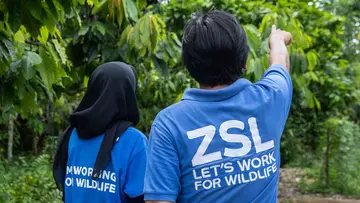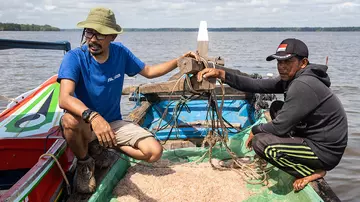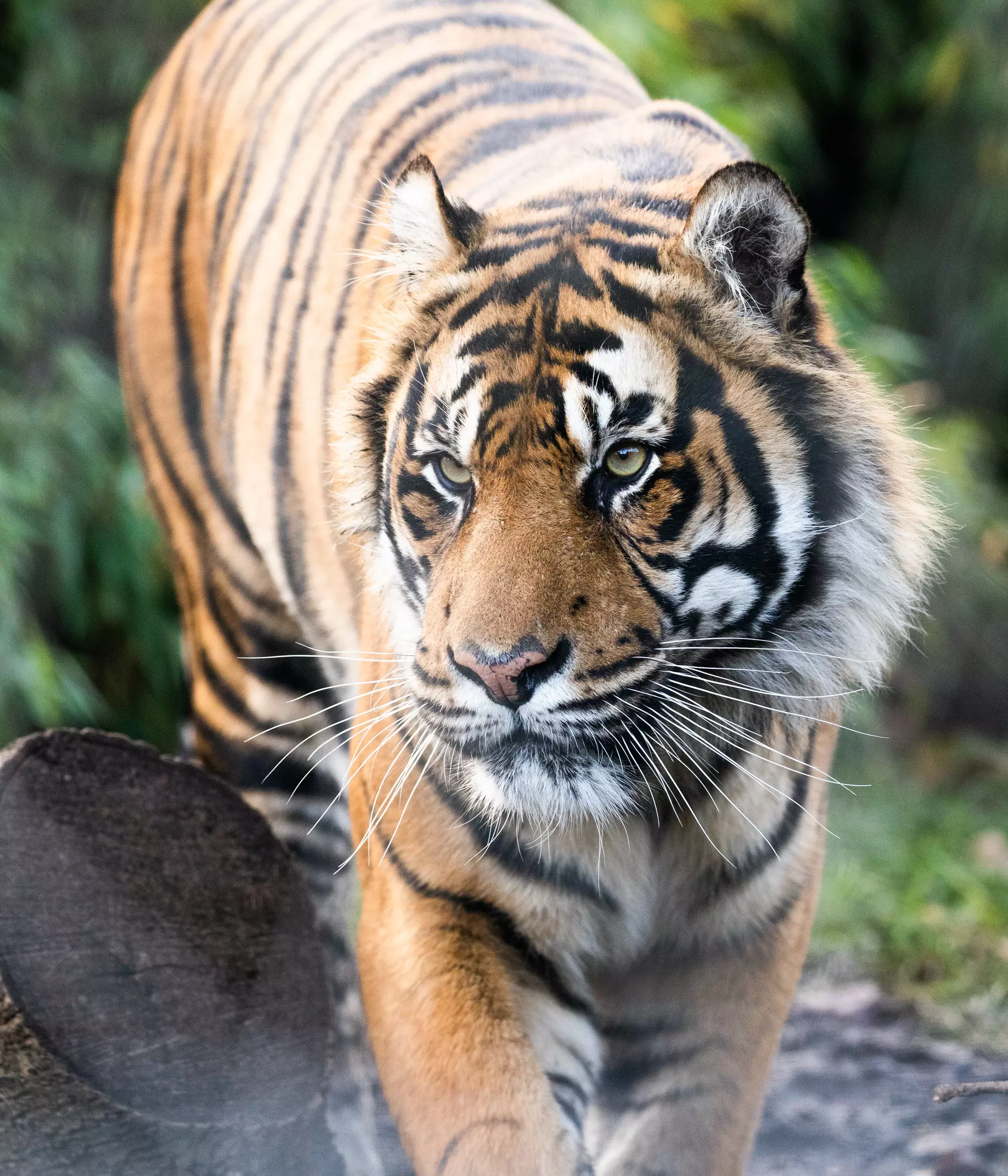
All over the world, wildlife is losing ground to human development.
ZSL has tackled tiger habitat loss and fragmentation in South Sumatra by reconnecting and rehabilitating the island’s precious forests and peatlands – and finding ways for people and other animals to share the landscape.
The Sumatran tiger is running out of room to roam. Its native forests are among the richest in biodiversity on Earth, and once covered most of Sumatra. But rapid human development has wiped out more than half of that forest cover since 1985. These magnificent, large animals need large territories to support healthy populations but are finding themselves in ever-smaller patches of viable habitat, hemmed in by rubber and oil palm plantations, logging and mining concessions, villages and community land. The isolated tiger populations that remain are increasingly coming into conflict with their human neighbours. Today, there are fewer than 400 of these critically endangered animals left in the wild.
What are we doing to help?
ZSL’s five-year KELOLA Sendang project in South Sumatra set out to join up ‘stepping stones’ of wild habitat between two protected areas, Sembilang National Park and Dangku Wildlife Reserve, to improve connectivity for tigers, elephants and other biodiversity in the region. It worked with the Indonesian government, private sector industries and local communities, bringing a range of interest groups together in order to create safer spaces and corridors of movement for wildlife.
The project recognised that the region’s key tiger habitats – forests, mangroves and peatlands – are also natural carbon stores that help mitigate climate change; unless damaged or destroyed, when their CO2 is released. Peatland, in particular, is the world’s most important terrestrial carbon store; but if drained for agriculture or irrigation it becomes a fire hazard, blazing for weeks if ignited. Deforestation, slash-and-burn agriculture and frequent fires have all contributed to making Indonesia one of the world’s biggest greenhouse gas emitters.

Reducing devastating human impact
Project work ranged from ‘top down’ initiatives, such as working with the government to promote conservation on regional and national policy agendas, to grassroots action, such as introducing community-based fire prevention.
The project also engaged with the palm oil and natural rubber sectors to help develop more wildlife-friendly land management practices. Encouragingly, 96% per cent of palm oil companies assessed using ZSL’s innovative SPOTT (Sustainability Policy Transparency Toolkit) benchmarking increased their transparency during the project period.
Recognising that we can’t hope to help wildlife without the support of its human neighbours, ZSL worked with villages across the region to reduce conflicts with wild tigers and elephants, train smallholders in more sustainable farming methods, and provide better livelihood prospects that won’t impact on nature – including setting up eight sustainable businesses.

Right to roam
Meanwhile, ZSL scientists investigated peatland rewetting and rehabilitation, bringing together policymakers, academics and NGOs to share their differing perspectives and pave the way for a future consensus strategy. And to improve monitoring of high-value ecosystems like peatland, a cutting-edge monitoring system was designed and implemented for use by government bodies.
ZSL's work in South Sumatra underlined that the biodiversity and climate crises cannot be looked at in isolation, but require joined-up action; and that to connect habitats, we also have to connect people. It opened dialogues between all those with a stake in these landscapes – often for the first time – as well as giving a voice to the wildlife that can’t defend its own right to roam. Learnings from Sumatra, and ground-breaking tools like SPOTT, will continue to underpin ZSL’s work as we strive to find nature-based solutions to the pressures on the planet’s irreplaceable wild places.
Help us create a safer world for people and for wildlife
